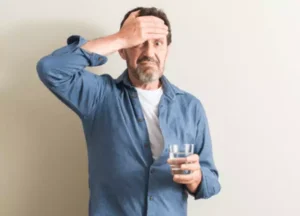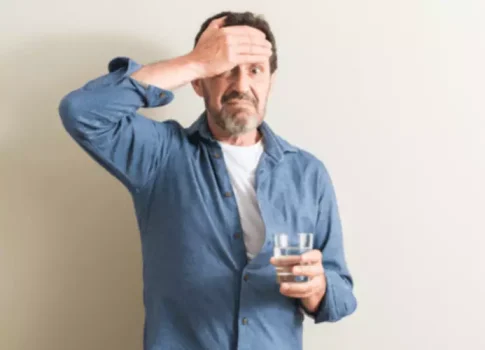
SAMHSA defines recovery as a process of change through which individuals improve their health and wellness, live self-directed lives, and strive to reach their full potential. Dependence is a physiological adaptation to a drug, which can occur without addiction. However, dependence can contribute to the development of addiction in some people.
Relapse Prevention Strategies #
- While having a bad day or minor slip-up won’t hinder your progress in ERP, a more serious relapse—like blacking out or overdosing—can be dangerous and may require shifting the focus of treatment to getting sober first.
- Marijuana abuse is linked to many health problems that affect a person’s heart, lungs, and mental well-being.
- The length of treatment depends on several factors, including your needs, level of care, substance used, severity of your disorder, other co-occurring conditions, among other things.
- About 30% of people who use marijuana may have some level of marijuana use disorder.
- A well-crafted plan helps individuals identify triggers, develop healthy coping mechanisms, and continue therapy and counseling to maintain their sobriety.
When it comes to treating weed addiction, incorporating lifestyle changes and seeking support are essential components of the recovery process. These strategies aim to address the underlying issues contributing to addiction and provide individuals with the tools needed to maintain long-term sobriety. In this section, we will explore healthy coping mechanisms, building a support system, and addressing underlying issues. The symptoms of marijuana addiction include cravings, increased tolerance, withdrawal symptoms such as irritability and sleep difficulties, and a reduced ability to function in daily activities. According to a report by the National Institute on Drug Abuse (NIDA), 30% of marijuana users develop some form of cannabis use disorder. Michael Leach is a Certified Clinical Medical Assistant, who has over 5 years of experience working in the field of addiction.
Need help now? Contact our free 24/7 addiction treatment helpline

Long-term marijuana use can have adverse effects on lung health (for those who smoke), cardiovascular health, and cognitive function. By quitting is marijuana addictive or reducing marijuana use, individuals can reduce the strain on their bodies and enhance their physical health. Using marijuana frequently or in high doses can increase the risk of developing an addiction.
Cognitive Behavioral Therapy

As an addictive substance, marijuana interacts with brain receptors and the endocannabinoid system, producing effects that range from mild euphoria to impaired memory and coordination. Over time, repeated use can lead to tolerance, dependence, and the development of cannabis use disorder. Individuals with marijuana alcoholism treatment addiction often experience symptoms like anxiety, depression, and withdrawal symptoms when attempting to quit, which can make the addiction cycle difficult to break. Many people who get treatment for marijuana addiction use behavioral therapy to tackle the psychological aspects of their addiction. The amount of time spent in behavioral therapy varies from person to person but may last roughly 12 weeks.
Medications
For many people trying to recover from a substance use disorder, perhaps for the majority, abstinence may be the most appropriate treatment objective. But complete abstinence is sometimes not achievable, even in the long-term, and there is a need for new treatment approaches that recognize the clinical value of reduced use. SAMHSA envisions that people with, affected by, or at risk for mental health and substance use conditions receive care, achieve well-being, and thrive. We’re a nonprofit organization, a resource of leading clinical expertise, and the first Tennessee addiction treatment center to achieve certification from the American Society of Addiction Medicine. At Cumberland Heights, staff, alumni, and advocates walk with each patient through every step on the journey to recovery, helping them rewrite their story – a story of hope, healing, and happiness.

This section discusses the key components of a relapse prevention plan, including identifying triggers, building healthy coping mechanisms, and the importance of ongoing therapy and counseling. Although it is not considered as harmful as other drugs, marijuana addiction can lead to severe mental, physical, and emotional side effects. We publish material that is researched, cited, edited and reviewed by licensed medical professionals.
